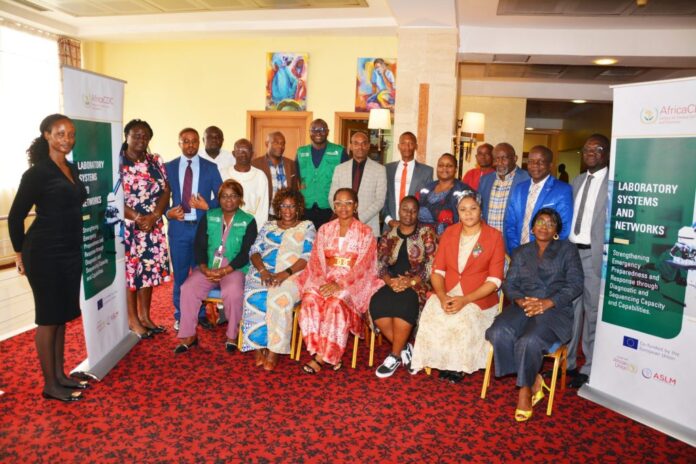The Africa Centres for Disease Control and Prevention (Africa CDC) has convened public health leaders from ten African nations in Yaoundé, Cameroon, to co-develop a continental framework aimed at decentralizing laboratory services. The four-day workshop, which began on July 14, centered on making diagnostics more accessible to communities as a key strategy in strengthening Africa’s preparedness and response to epidemics.
Jointly organized by Africa CDC, Cameroon’s Ministry of Public Health, the World Health Organization (WHO), and the European Union, the workshop brought together national laboratory directors, health officials, and public health experts. The outcome was the “Continental Guidance for the Decentralization of Laboratory Services”, a practical, action-oriented document designed to help Member States formulate national diagnostic strategies that enhance outbreak detection and response.
“Member States cannot respond effectively to outbreaks if diagnostic capacity is centralized,” said Dr. Yenew Kebede Tebeje, Acting Director of Africa CDC’s Centre for Laboratory Diagnostics and Systems. “Decentralized services are essential for early warning, timely diagnosis, and achieving Universal Health Coverage.”
Cameroon shared its approach to decentralizing diagnostics for epidemic-prone diseases, highlighting efforts such as strengthening regional labs, training health personnel, and establishing a national sample transport system.
WHO’s Rachel Achilla underscored the importance of decentralized labs as the “first line of defense” in outbreak detection, while delegations from Burundi and the Democratic Republic of Congo showcased rapid expansion of Mpox diagnostic labs, from two to over 50 labs each, in just one year.
Despite the progress, participants acknowledged challenges including the need for better infrastructure, data integration, trained staff, and reliable supply chains. Gifty Boateng from Ghana stressed the critical role of National Public Health Laboratories in maintaining standards and mentoring regional facilities.
The workshop forms part of the PAMTA (Partnership to Accelerate Mpox and Other Outbreaks Testing and Sequencing in Africa) program, co-funded by the EU through HERA and administered by HaDEA. The initiative supports broader continental goals to boost diagnostic capacity, build resilience, and improve readiness against health emergencies.
“Our collective goal is not just to decentralize,” said Yao Selom of Africa CDC, “but to do so wisely, ensuring sustainability, quality, and community impact.”
Written By Rodney Mbua



















